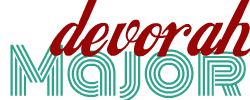
I know you as a composer, poet, film maker, performance artist, multi-genre theater producer, singer and more, but focusing on those how does each art feed the other? Is there one art which takes primacy over the other?
While I’d love to say that I have these inspired, long-term ambitions, my work is almost always project-based so it depends on the commission or grant or residency. I’m an artist of circumstance. And geography–traveling inspires me immensely. That said, depending on the project or my state of mind, I write, compose, sing or make films. It’s really as simple as that.
You say geography inspires you immensely. Do you see yourself who is in any way regional?
I’m a Southern poet in exile in San Francisco. But, for anyone who knows New Orleans, my hometown, it’s unlike any southern city in, say, states like Virginia or Georgia or Arkansas or Mississippi. Bawdiness, religious fervor, jazz, gospel and blues all coexist. It’s a city of extremes and contradictions. I’m exactly the same. Exactly the same. So, while I’m poet who identifies very strongly with southern sensibilities, its history and traditions, I’m also racy, impolite and indignantly agnostic. And living and working for years in Japan and San Francisco complicates me even more. Needless to say, my work, my writing, especially, testifies to this, which is perhaps why I’m not more successful. I take being various to an extreme.
You recently had your second book, _Bend to It, _released. How was putting it together different from your first _Mad for Meat_?
Bend to it is all over the place thematically, whereas as Mad for Meat was more concentrated around the body, sensuality and sexuality. I enjoy reading poetry collections that are not built around a single theme and take me on wildly different adventures. This, however, is not a feeling shared by everyone. Though reviews of Bend to it have all been positive, critics have mentioned they found it challenging to find the book’s center. Life is fragmented and this collection reflects that. What unifies it is my voice.
Did putting to the anthology _Collective Brightness_ which asked members of the LGBT community to write their expressions of religion, faith and spirituality, change your own work in any way?
Editing this groundbreaking anthology was a joy. The poets–all living–write from radically different perspectives about faith, religion and spirituality. And the entire enterprise was a bit selfish on my part because I needed an anthology like it to exist. I needed a collection to illustrate ways to consider these issues that have confounded me and inspired so much of my own writing. More to the point of your question, yes, it changed my work in the sense that I’m more adventurous in how I write about religion. In fact, my next collection, tentatively entitled Upright, considers religion quite a bit, and I know that the poems in Collective Brightness were instructive for me in both the conception and generative process.
When you face the blank page or screen how do you feel?
Terrified. It’s as if I’m starting all over from scratch, that my previous writing experience is meaningless. And, it’s important to mention, I feel more terrified than excited. I’m writing against silence–the chronic and impoverishing silence of my family, especially. And that silence seems an impenetrable wall until I’ve written some words, a few chords, a melody or start editing film footage.
I have gone from a writer who wrote for the first rush of joy and edited out of necessity to one who know really enjoys the editing and refining as much as that initial creative flow. How do you relate to the act of editing the poem?
I adore editing–always have. Because music and lyricism are so important to me, I embark on the process knowing it’ll take time. Sometimes months or years. That’s part of the terror of beginning a new work: I know the end is probably far, far away. And I’m very impatient.
What do you feel is the responsibility of the artist in these difficult times of poverty, war, and increasingly open racism?
Life is mostly struggle. If you don’t think you have something personal to say about struggle, for goodness sake, say something about someone else’s struggle. If you aren’t engaged in a struggle, your art is probably boring and vacuous. If you don’t want to accept the responsibility of an artist to say and show and illuminate the most pressing human issues, those issues that should drive your own artistic obsessions, then go and sell real estate, instead.
Kevin Simmonds is a musician and writer originally from New Orleans. His books include the poetry collections Bend to it and Mad for Meat (Salmon Poetry, 2014 & 2011) and two edited works, Ota Benga Under My Mother’s Roof (University of South Carolina Press, 2012), the final work of the late writer Carrie Allen McCray, and the poetry anthology Collective Brightness: LGBTIQ Poets on Faith, Religion & Spirituality (Sibling Rivalry Press, 2011).

A challenging unneatrkidg I am fascinated. I have signed on to receive your updates. It looks like on be in for the ride of my reading life. Glad you stopped by my blog and posted a comment Thank You I have discovered you through that so glad that I did. I will be back to continue your others.Isadora